
One day, about six years ago, I asked my daughter on the computer: “Do you like women?” I couldn’t write, let alone say out loud, the word lesbian. My daughter replied, “Ma, wouldn’t you rather have this conversation in person?” That answer told me everything.
My legs started shaking. It was like having a bucket of cold water dumped on me. I called her dad, my husband, and I showed him the computer. He read that pair of lines and just said, “Well, if it is so, it is so. I cried all night, so much, that the next day I even felt likeI was short of breath. I felt that breathing was an effort, and that when I went out, everyone, absolutely everyone, was looking at me.
My name is Vitinia Varela, and I am the mother of a lesbian.
***
I was born in San Jorge de Cobano, Puntarenas, in 1963. I am 56 years old. Of those, I have lived 40 years in the canton of Tilaran. There were 13 of us, 11 siblings and two grandchildren that Mom raised.
I remember that here in Tilarán, there was a famous person who everyone said had HIV just because he was gay. That’s what it was like in those times.
I didn’t hear people talk about gays or lesbians very much. And in the family, oh in the family, this whole issue was hidden. Today I imagine that I have many relatives with a story like that of my daughter, but because of fear they remain hidden.
I thought that only happened to the neighbor, that it would never happen to my family.
The LGTBIQ acronym? I didn’t know what that meant until six years ago. It mattered so little to me.
***
My concept of a lesbian was different; it was of a woman who looked like a man. Ana Maria is the youngest of my three children, two of them are boys. But she was very girly. She had dolls, went around with bracelets, with necklaces. How could I not be shocked when she told me she liked women if I never suspected anything?
In high school, she hung out with gay friends, but she is a noble soul and I thought she hung out with them to make them feel welcome.
At that stage of schoolgirl, Ana wrote poetry and even made a blog. I read it and thought that the poetry was something crazy. Until one day I read one of the verses and said: “That your lips, that your mouth … enchant me.” It was as if a man was writing to a woman. But it was Ana writing to another woman!
It was then when I grabbed the computer, and afraid of humiliating her and even offending her, I asked her.
It was all the fault of poetry… God bless poetry!
***
I was baptized and married by the Catholic Church. I believe in God, but I am not closed-minded in my creed. My husband Adolfo explains it this way: we believe in a God of love, who does not see differences, if we are rich, poor, gay or lesbian. For Him we are all equal.
Adolfo says that we can practice religion in many ways: live and let live.
At 42, I started studying at the State Distance University (UNED- Universidad Estatal a Distancia). I earned a diploma in administration and took a course in Cultural History. In that course, I discovered myself realizing things about the religion that I didn’t like. I remember telling my teacher that I was better before all that. I began to feel uncomfortable with the sermons from the pulpit that attacked homosexual people.
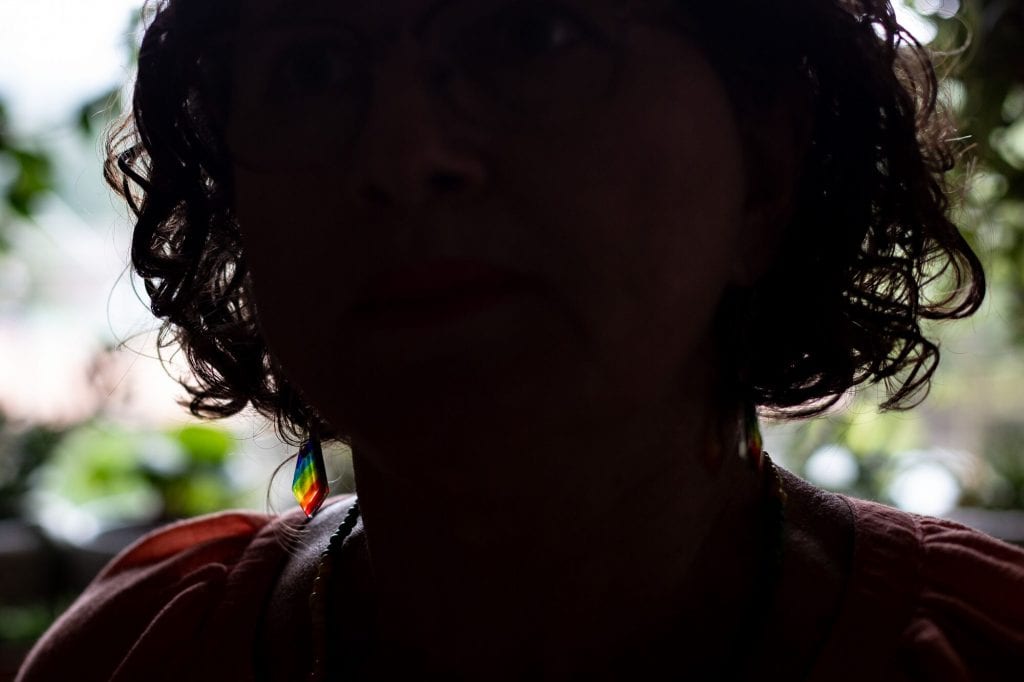
Vitinia shouts support for sexually diverse people. The colors of the LGTBIQ flag stand out.Photo: César Arroyo
***
Since Ana Maria told me she was a lesbian, I spent two years in denial. There were days when I could go out to defend her and I didn’t care about anything, but there were others when I preferred everything to be kept quiet. It was like a roller coaster.
I accepted that I needed to educate myself and I attended the meetings of the Support Group for Family and Friends of Sexual Diversity of Costa Rica (Gafadis- Grupo de Apoyo para Familiares y Amigos(as) de la Diversidad Sexual de Costa Rica).
It was the time to strip off myths and prejudices, but always asking myself, “What if we are all crazy in this group?”
I arrived home with information pamphlets and Adolfo read them. He was also having an internal war. He had told Ana Maria that he accepted her but if he saw his colleagues at work, all men, together in a little group, he thought they were talking about our family.
The word lesbian still wouldn’t come out of my mouth well, but I ended up seated at the first internationl convention of families for sexual diversity that was held in Costa Rica.
I was born again at that convention.
***
I am the black sheep of my family. Some relatives condemn me because I want everyone to respect Ana Maria.
In 2018, Adolfo and I attended the diversity march in San Jose together. We went as a surprise to march all three of us, united. That day, we didn’t care what people would say. That day we just celebrated the love of our daughter.
Believe me, that was an achievement for all of us. Because two years before, in 2016, on my first march, an umbrella saved me as I covered myself from how many television cameras so that my mom, Ana Maria’s grandma, wouldn’t see me on TV.
And for Adolfo, in 2017, a giant straw hat was the salvation from the looks that, according to him, were strange.
***
On August 29, 2019, the story of Ana Maria, Adolfo and me was in newspapers, on television, everywhere. We were featured in the first video of the “Yes, I accept” campaign, an initiative that aimed to create awareness about sexual diversity in the whole country.
We had the opportunity to tell other families not to lose the love of their son or daughter. And we accept her.
I was becoming an activist and I didn’t even know what that was. One day, the person who invited us to be part of the campaign explained it to me: that desire of yours to want to show your face so that people know that they can count on you is being an activist.
I jumped into sharing my testimony and ended up forming the “Love for Tila’s Diversity” project in Tilaran, which already held its first meeting.
Friends and family have left, they have ended their cycle with us, and others have arrived. But what really matters to me is that Ana Maria can be completely free.
Adolfo and I believe in a love without buts, because in the end we are eternally grateful to all the people who were with my daughter at the time when he and I were not present.
Editor’s Note: This story was written by journalist Andrea Rodriguez Valverde based on the story told by the person as a reference. The testimony was only modified in a matter of style.


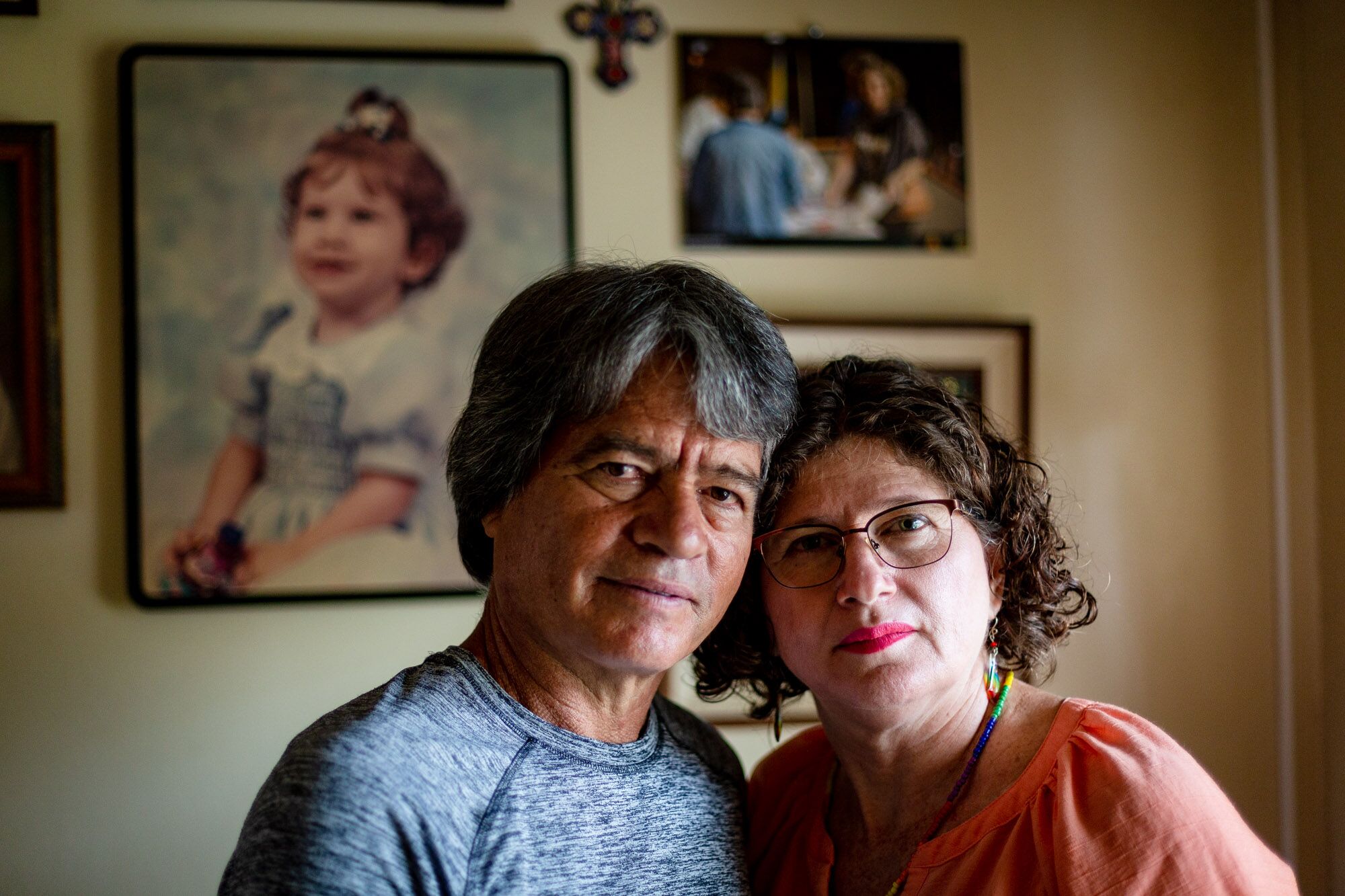
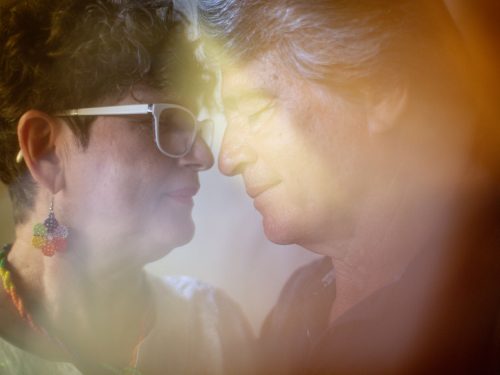
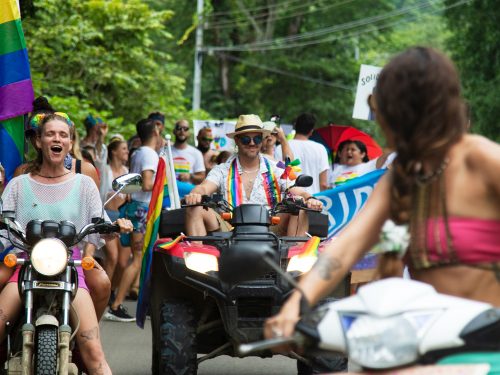
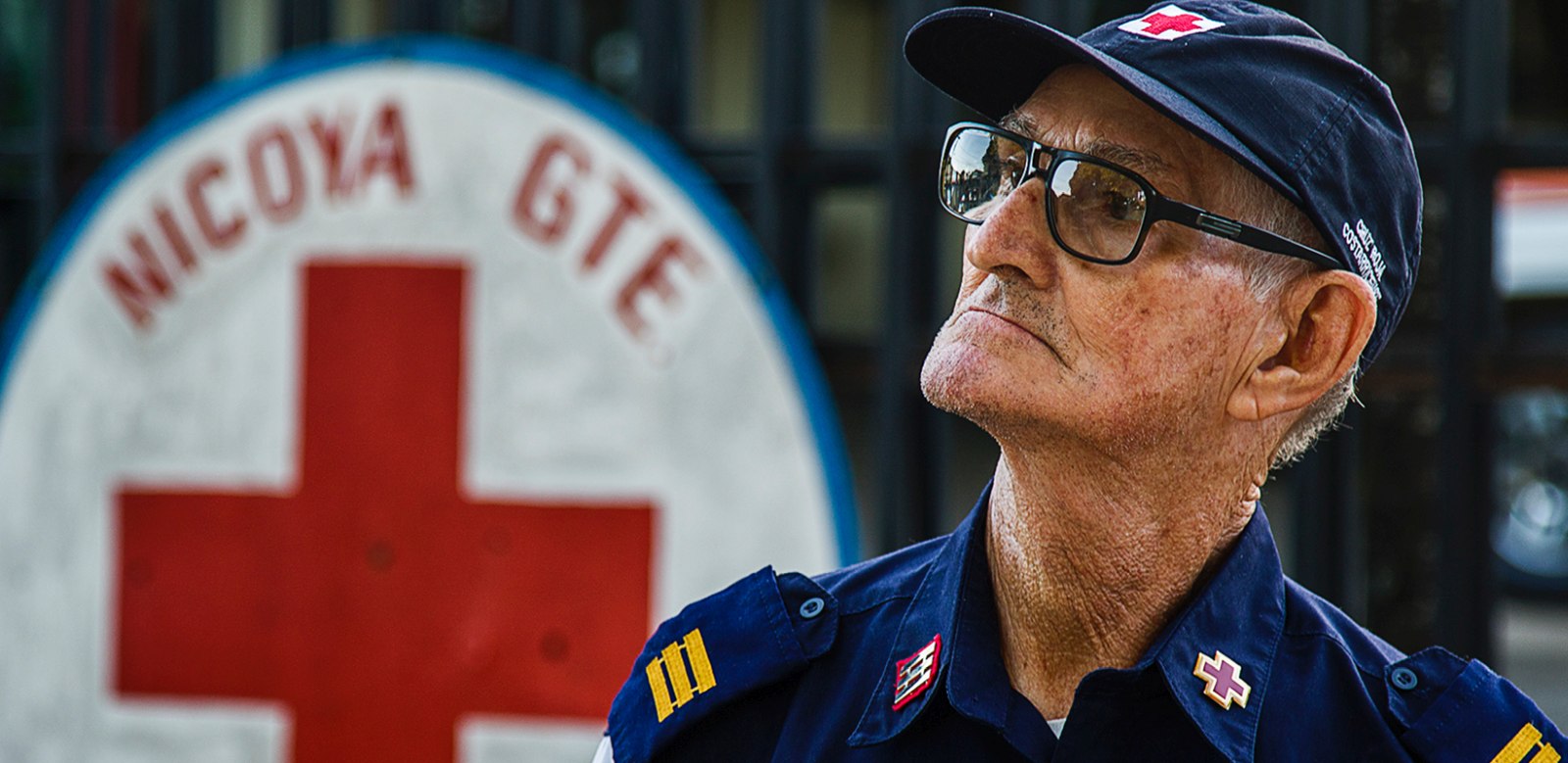

Comments